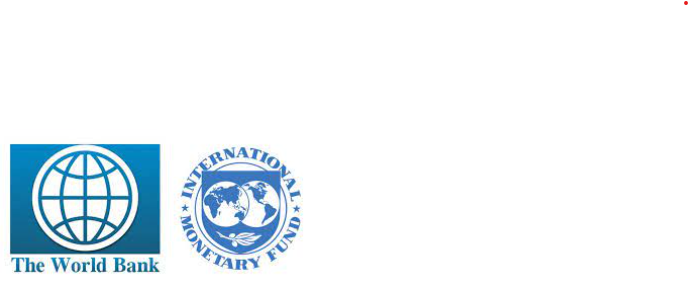
In the ever-changing global economic environment, multilateral institutions such as the World Bank and the multilateral Monetary Fund (IMF) play critical roles in influencing the economic policies of developing countries. Kenya, a thriving East African country, has not been immune to this effect. This blog examines the World Bank and IMF’s important judgments concerning Kenyan tax policies and their impact on the country’s fiscal situation.
Historical Perspective: Kenya’s Relationship with the World Bank and IMF.
Since its independence in 1963, Kenya has maintained a long-standing relationship with both the World Bank and the IMF. This collaboration has grown throughout the years, focusing on many facets of economic development such as fiscal reforms, poverty reduction, and infrastructure development. These agencies’ choices on Kenyan tax policies have been critical in influencing the country’s economic destiny.
Tax Policy Reforms: A Priority for Kenya.
Kenya’s economic development and growth are heavily reliant on the success of its tax policy. Kenya has historically faced issues such as tax evasion, a restricted tax base, and complex tax schemes. These difficulties hampered income generation and the ability of the government to fund important public services.
Broadening the Tax Base: The World Bank and IMF have encouraged Kenya to extend its tax base, which involves increasing the number of taxpayers and revenue streams subject to taxation. This has been accomplished through decreasing tax breaks and incentives for individual industries, resulting in a more equitable allocation of the tax burden.
Tax Structure Simplification: The complexity of tax systems can inhibit compliance and impede economic growth. Both institutions have urged Kenya to streamline its tax system in order to make it more transparent and easier for businesses and individuals to manage.
Improving Tax Administration: The World Bank and the IMF have backed efforts to improve Kenya’s tax administration capabilities. This includes technical assistance, tax official training, and the implementation of contemporary tax collecting systems to boost efficiency and prevent tax evasion.
Economic Impact: The Consequences of Tax Policy Decisions.
The decisions made by the World Bank and IMF regarding Kenyan tax policies have had a profound impact on the country’s economy.
Revenue Mobilization: Increasing revenue mobilization has resulted from broadening the tax base and enhancing tax collection procedures. This extra cash has been directed toward important sectors such as education, healthcare, and infrastructure development.
Investor Trust: Stable and predictable tax policies inspired by international organizations have increased investor trust in Kenya. This has drawn foreign direct investment and promoted economic growth, resulting in the creation of jobs and the alleviation of poverty.
Poverty Alleviation: The increased income generated by improved taxation has allowed the Kenyan government to spend in poverty alleviation programs, thereby increasing citizens’ living standards.
Challenges and Criticisms.
While the World Bank and IMF choices have had favorable consequences, there are also problems and criticisms to consider. Certain tax laws, some claim, may unfairly burden low-income individuals and small businesses. Furthermore, ongoing vigilance is required to guarantee that tax funds are spent efficiently and transparently for the benefit of all Kenyan people.
In conclusion, The World Bank and IMF’s judgments on Kenyan tax policy have had a significant impact on the country’s economic environment. Kenya has been able to enhance revenue mobilization, attract investments, and reduce poverty by focusing on broadening the tax base, simplifying tax structures, and improving tax administration. While issues remain, the overall impact of these international organizations on Kenyan tax policies highlights the significance of global collaborations in driving economic development and advancement in developing countries. Kenya’s path to fiscal sustainability and economic progress is inextricably linked to its ties with the World Bank and IMF.

